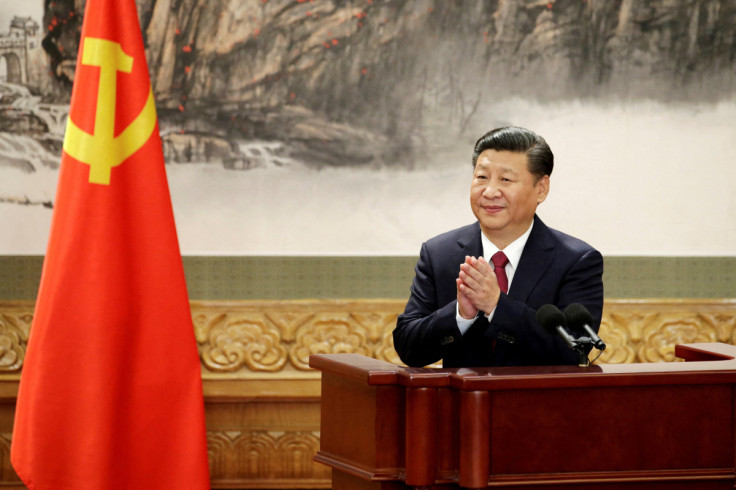What Makes China's Xi Jinping The Most Powerful Man In The World?
KEY POINTS
- Xi Jinping is on track to become "the new Mao"
- Xi has boosted China's Belt and Road Initiative
- China allocated $293 billion to its military in 2021, a 72% increase from 2012
Xi Jinping looks to retain his position as China's leader at the Chinese Communist Party congress meeting this week, breaking away from the traditional two-term limit. Striking a confident tone in his two-hour-long speech, Xi listed Taiwan, Hong Kong and COVID-19 as his administration's biggest challenges.
Experts have tagged Xi as the most "powerful man in the world" as Beijing continues to assert pressure in Asia and beyond. Professor Joe Siracusa of Curtin University told Sky News that China is "inclined to believe him right now because, let's face it, he is the only show in town."
Steve Tsang, who heads the China Institute at the London University School of Oriental and African Studies, told AP that Xi "is not coming out looking weaker." Tsang added, "I see Xi having his way at the 20th congress, mostly. It is a question of how much more powerful he will be coming out of it."
The Chinese politician is also on track to become "the new Mao," Al Jazeera reported. He will become one of the four individuals who have been recognized as the Chinese Communist Party's "core" leaders. Mao Zedong, Deng Xiaoping and Jiang Zemin are the only ones who have reached this feat before.
The President of a country with more than 1.4 billion people, Xi is not bound by accountability. He also makes policies for the leading superpower, which is expected to spearhead the global economy in the coming years, and already commands one of the most powerful armed forces in the world.
Xi got the ball rolling on China's "Belt and Road Initiative," wielding the weapon of nationalism but with international aspirations. The trillion-dollar plan puts China back on the map, with Xi leading the way. The Belt and Road Initiative rejuvenates the old Silk Road and connects China to Asia, Africa, Europe and even South America.
Donald Trump's entry into the Oval Office was a blessing in disguise for Xi, who then expanded China's international footprint. Washington was focused on domestic issues during this time. When Joe Biden took office in 2021, he was dealing with a partisan America, Time Magazine reported.
China allocated $293 billion to its military in 2021, marking a 72% increase from 2012, according to a report published by the Center for Strategic and International Studies earlier this year. The US budget "represented a decrease of 1.4% in real terms," the report said.
On the diplomatic front, Xi has managed to disrupt the foreign policies of his Asian neighbors. Beijing's territorial claims stretch from the south and east China seas to the Himalayas. Xi has also boosted military and diplomatic pressure on Taiwan, the island democracy that the Communist Party says belongs to China.
While China may not be directly involved in the Russia-Ukraine conflict, its foreign policies are reflected in Moscow's conviction. While the west rolled out a flurry of sanctions, Russia's oil exports to China soared to record heights, Reuters reported.
The international order, commonly spearheaded by the U.S., is now on a collision course with China's increasing influence, making Zhongnanhai seem like the new White House, or Kremlin.

© Copyright IBTimes 2025. All rights reserved.



















